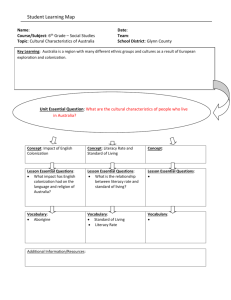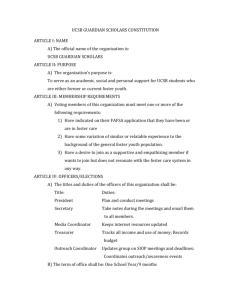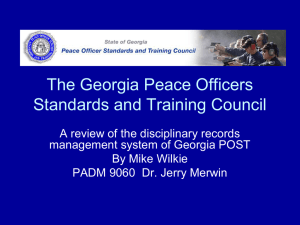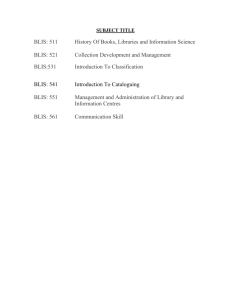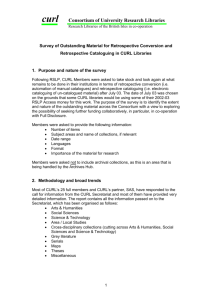CMIS ministers letter 26 August 2013
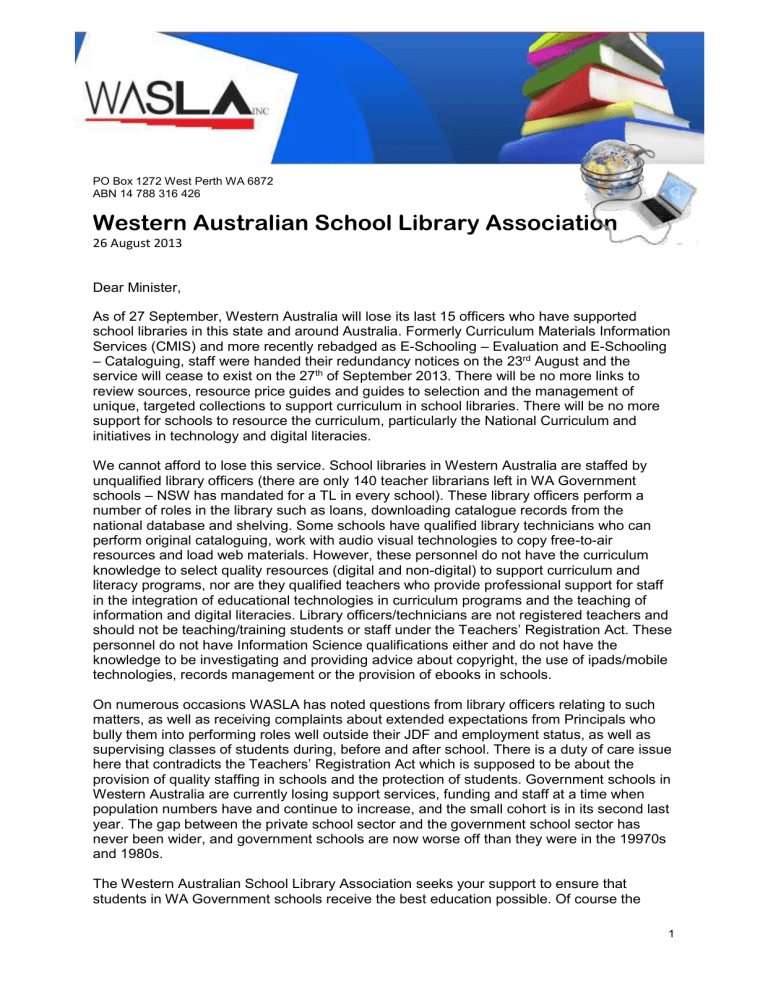
PO Box 1272 West Perth WA 6872
ABN 14 788 316 426
Western Australian School Library Association
26 August 2013
Dear Minister,
As of 27 September, Western Australia will lose its last 15 officers who have supported school libraries in this state and around Australia. Formerly Curriculum Materials Information
Services (CMIS) and more recently rebadged as E-Schooling – Evaluation and E-Schooling
– Cataloguing, staff were handed their redundancy notices on the 23 rd August and the service will cease to exist on the 27 th of September 2013. There will be no more links to review sources, resource price guides and guides to selection and the management of unique, targeted collections to support curriculum in school libraries. There will be no more support for schools to resource the curriculum, particularly the National Curriculum and initiatives in technology and digital literacies.
We cannot afford to lose this service. School libraries in Western Australia are staffed by unqualified library officers (there are only 140 teacher librarians left in WA Government schools
– NSW has mandated for a TL in every school). These library officers perform a number of roles in the library such as loans, downloading catalogue records from the national database and shelving. Some schools have qualified library technicians who can perform original cataloguing, work with audio visual technologies to copy free-to-air resources and load web materials. However, these personnel do not have the curriculum knowledge to select quality resources (digital and non-digital) to support curriculum and literacy programs, nor are they qualified teachers who provide professional support for staff in the integration of educational technologies in curriculum programs and the teaching of information and digital literacies. Library officers/technicians are not registered teachers and should not be teaching/training students or staff under the Teachers’ Registration Act. These personnel do not have Information Science qualifications either and do not have the knowledge to be investigating and providing advice about copyright, the use of ipads/mobile technologies, records management or the provision of ebooks in schools.
On numerous occasions WASLA has noted questions from library officers relating to such matters, as well as receiving complaints about extended expectations from Principals who bully them into performing roles well outside their JDF and employment status, as well as supervising classes of students during, before and after school. There is a duty of care issue here that contradicts the Teachers’ Registration Act which is supposed to be about the provision of quality staffing in schools and the protection of students. Government schools in
Western Australia are currently losing support services, funding and staff at a time when population numbers have and continue to increase, and the small cohort is in its second last year. The gap between the private school sector and the government school sector has never been wider, and government schools are now worse off than they were in the 19970s and 1980s.
The Western Australian School Library Association seeks your support to ensure that students in WA Government schools receive the best education possible. Of course the
1
impact of the loss of support services and funding increases tenfold for schools located outside the metropolitan area, where limited access to technical expertise and qualified professionals is a major issue. The Education Department still struggles to get teachers into rural and remote area schools. Teachers and students require quality professional staff and strongly resourced schools, to broaden children’s reading experiences and raise literacy levels (NAPLAN scores), to support curriculum programs that embrace new technologies and digital literacies, and to graduate students who have future workplace and lifelong learning skills.
The E-Schooling – Evaluation and E-Schooling – Cataloguing services were at least providing support and guidance for untrained library officers in schools across WA. What will these schools do now? What will WA legislators do to assure the students in our state will have quality reading and information literacy programs and our teachers have quality support for their teaching? The Association and members of school communities around the
State look forward to your response to these issues.
Yours sincerely
Barbara Combes,
MA Internet Studies, Grad Dip Internet Studies, Grad Dip App Sc (Teacher
Librarianship), Grad Dip Ed, BA
President WA Operations, WASLA
Secretary, Information and Reading Section, International Federation of Library
Associations (IFLA)
Lecturer, School of Information Studies, Charles Sturt University
2



